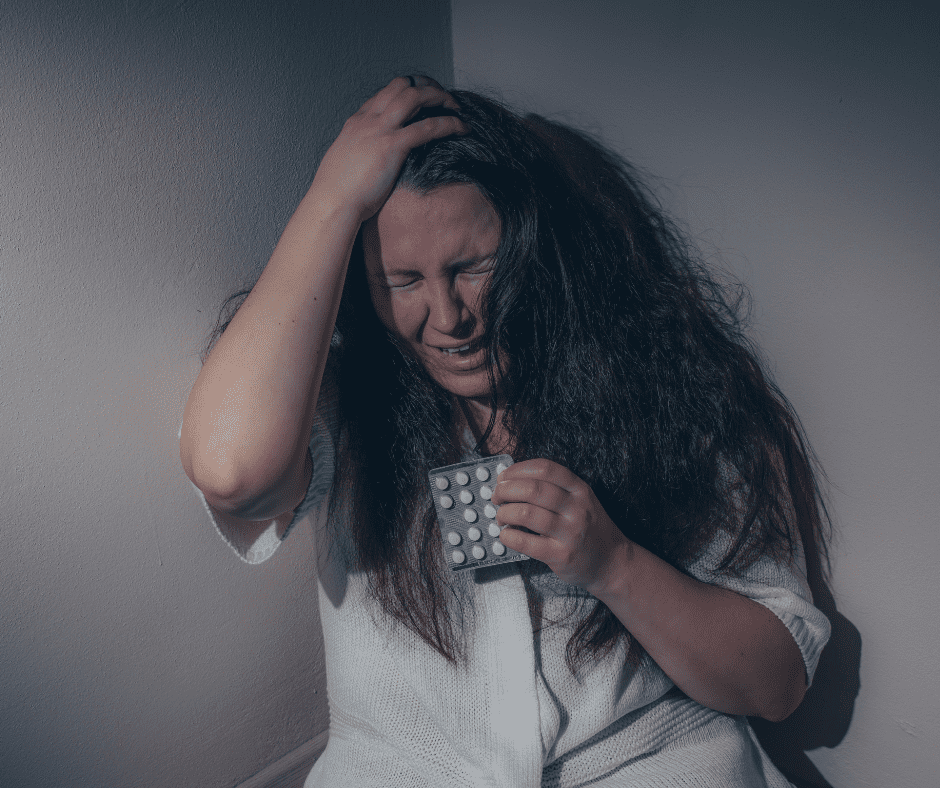Key Takeaway:
- Xylazine addiction is a serious problem that can affect mental health: Xylazine is a veterinary drug that has been abused for its sedative effects, leading to addiction and a range of mental health conditions such as anxiety, depression, and bipolar disorder.
- Dual diagnosis treatment is crucial for recovery: Treating both the addiction and mental health disorder is essential for long-term recovery. Detoxification, medication-assisted treatment, and cognitive behavioral therapy can all be effective strategies for dual diagnosis treatment.
- Aftercare is critical to long-term recovery: Joining support groups and participating in outpatient treatment can help maintain sobriety and address ongoing mental health issues. Close monitoring of symptoms and ongoing therapy can help prevent relapse and promote overall health and wellness.
Are you struggling with an addiction to Xylazine and a mental health disorder? Dual diagnosis treatment can provide the tools you need to achieve and maintain your sobriety. With the right support and guidance, you can reach your recovery goals.

What is Xylazine Addiction? Understanding the Basics
Xylazine addiction is a growing problem that affects individuals worldwide. As someone who has witnessed the devastating effects of this addiction, I am aware of the importance of dual diagnosis treatment for both the addiction and underlying mental health disorders. In this portion of the article, we’ll discuss the basics of xylazine addiction, including defining what it is and how it impacts the human body. We’ll also dive into the signs and symptoms that may indicate someone is struggling with xylazine addiction. It is crucial to recognize the dangers of this addiction and understand how to identify and treat it to save lives.
Defining Xylazine Addiction and its Effects
Defining Xylazine Addiction and its Effects is an important topic to understand for anyone struggling with addiction or seeking information about it. Xylazine, also called “tranq”, “sleep juice” or simply “X”, is a medication used in veterinary medicine as a sedative for animals. However, it has become one of the newest drugs being abused by humans.
Xylazine works primarily on the central nervous system to depress activity and promote muscle relaxation, making it effective at treating animals who are in pain or agitated. When taken by humans, the drug causes a similar feeling of relaxation and sedation, but can also produce hallucinations and dissociative experiences. The exact mechanism of action is not yet fully understood, but researchers believe that it acts on the same receptors as other sedatives like ketamine.
Xylazine addiction is not well known but its effects on human health can be devastating. Overdoses of this drug have led to many emergency department visits and hospitalizations in recent years. Symptoms of addiction include increased tolerance (requiring larger doses for the same effect), withdrawal symptoms when use is stopped (such as sweating or shaking), and continued use despite negative consequences on health, work, or personal relationships.
Despite being commonly used in veterinary settings, there is very little research on human use of xylazine or its addictive properties. This makes treating addiction to the drug even more challenging than other types of substance abuse.
I remember meeting someone who had been addicted to xylazine years ago; he was a very talented artist who started taking the drug for its relaxing effects. Initially, taking small doses seemed harmless enough; however, he quickly became dependent on it and struggled to stop using it despite knowing how dangerous it was becoming.
Now that I’ve shared what Xylazine addiction is all about, let’s move forward to identifying signs and symptoms that can help someone identify if they’re struggling with addiction.
Identifying the Signs and Symptoms of Xylazine Addiction
Identifying the Signs and Symptoms of Xylazine Addiction is crucial in combating substance abuse. Xylazine is a potent drug commonly used as a veterinary sedative but has recently gained popularity among drug users seeking an intense high. Addiction to this drug can have severe effects on one’s health, with some cases leading to death.
Xylazine works by activating specific receptors in the brain responsible for controlling pain and anxiety, resulting in feelings of relaxation and numbness. However, these same receptors are what make xylazine addictive, leading to increased cravings for the drug.
Some common signs of xylazine addiction include physical symptoms such as dilated pupils, slowed movements, difficulty in breathing, nausea, vomiting, and seizures. Additionally, individuals may also display behavioral changes such as withdrawal from social life or taking risks to obtain more drugs.
It’s essential to note that identifying the signs and symptoms of xylazine addiction may not always be apparent; it requires a close observer to notice slight changes in an individual’s behavior pattern or habits. Moreover, denial is often common among addicts, making it difficult for them to recognize their addiction.
If you suspect that someone you know might be addicted to xylazine or any other substance abuse disorder seeking professional help. Don’t let fear hold you back from addressing the issue promptly; instead, reach out today and offer your support.
“Don’t wait until it’s too late! Remember that your loved one’s life could depend on it.” In other words – “Want to know more about Xylazine Addiction? Let me take you deeper into the rabbit hole of Substance Abuse.”

Mental Health Disorders alongside Xylazine Addiction
As someone who has struggled with Xylazine addiction, I know all too well how it can fuel a wide range of mental health disorders. In this section, we’ll explore the relationship between Xylazine addiction and mental health disorders in depth.
First, we’ll take a look at how Xylazine addiction can lead to various mental health issues. Then, we’ll dive into the different mental health disorders that are commonly associated with Xylazine addiction, including depression, anxiety, and bipolar disorder. By understanding the connection between Xylazine addiction and mental health, we can begin to develop an effective dual diagnosis treatment plan.
How Xylazine Addiction can lead to Mental Health Issues
Xylazine is a drug commonly used as a sedative for animals, but its misuse has led to addiction in human beings. Xylazine addiction can have serious health consequences, particularly relating to mental health.
Studies have shown that xylazine works by increasing dopamine levels in the brain, which induces pleasure and euphoria in the user. This often leads to an addictive behavior where the individual repeatedly uses xylazine to experience this “high.” Xylazine also affects the central nervous system and can lead to anxiety and depression.
The reasons behind xylazine’s effect on mental health are still being studied; however, there are several theories. One theory suggests that repeated dopamine surges caused by xylazine use may damage the brain’s ability to regulate mood naturally. Another theory suggests that xylazine disrupts the body’s natural balance of neurotransmitters, leading to depression or anxiety.
It is important to note that not all individuals who misuse xylazine will develop mental health issues. Certain risk factors, such as a pre-existing history of mental illness, high-stress environments, and prolonged use of xylazine, can increase the likelihood of developing related mental health disorders.
If you or someone you know is suffering from xylazine addiction and experiencing symptoms of depression or anxiety, seeking professional help should be a priority. Combining behavioral therapy with medication therapy can lead to effective treatment outcomes.
One must remember that recovery from addiction is possible with consistent efforts towards sobriety and seeking help whenever necessary. However, it may require patience, persistence, and hard work along with regular check-ins with healthcare providers while undergoing therapy.
Mental health disorders associated with xylazine addiction include:
- Depression
- Anxiety Disorder
- Bipolar Disorder
We’ll explore each one more in-depth in our next section: cope up yourself to get rid of these demons inside your head.
Different Mental Health Disorders Associated with Xylazine Addiction: Depression, Anxiety, Bipolar Disorder
Different mental health disorders are commonly associated with xylazine addiction. These include depression, anxiety, and bipolar disorder. All of these conditions can often be exacerbated by drug use, which can lead to serious negative consequences.
Depression is a common mental health disorder that can occur alongside xylazine addiction. It is characterized by feelings of sadness and hopelessness that persist for an extended period of time. Individuals who struggle with depression may exhibit additional symptoms such as fatigue, loss of interest in activities they once enjoyed, and trouble sleeping.
Anxiety is another possible side effect of xylazine addiction. While some level of anxiety is normal and healthy, individuals who experience it excessively or in inappropriate situations may have an anxiety disorder. Symptoms such as sweating, trembling or shaking, racing thoughts, rapid heart rate, and difficulty focusing are common in people with an anxiety disorder.
Bipolar disorder, also known as manic-depressive illness, manifests itself with extreme fluctuations in mood. Individuals with this condition alternate between periods of euphoria (mania) and deep depression. Substance abuse can have dangerous implications for someone suffering from bipolar disorder; drugs can mask symptoms, make them worse, or interact negatively with their medication.
It’s important to note that xylazine addiction doesn’t happen overnight; it develops over time through repeated use. In addition to abstaining from drug use entirely or seeking professional treatment before any harm occurs – virtual therapy sessions could very well help if online options for counseling service still exist during times like these due to the pandemic – lifestyle changes such as getting regular exercise or meditation can assist in promoting positive coping strategies when stress arises.
Looking for a way out? Dual diagnosis treatment offers different ways to stay clean without relapsing into old habits despite hurdles at home/work life that arise due to mental health disorders being diagnosed during the recovery process!

Dual Diagnosis Treatment Options for Xylazine Addiction and Mental Health Disorders
In the journey of recovery from addiction and mental health disorders, Dual Diagnosis Treatment proves to be an effective approach. Today, we will explore some of the Dual Diagnosis Treatment options for Xylazine Addiction and mental health disorders.
In this section, we will show you different ways of confronting Xylazine addiction and mental health, such as through the detoxification process, cognitive behavioral therapy, and dialectical behavior therapy. We will also take a closer look at specific medical approaches to Dual Diagnosis Treatment, including Medication-Assisted Treatment for Xylazine addiction and mental health disorders.
It’s essential to have the correct guidance and knowledge about this type of treatment, so let’s dive in.
Dealing with Xylazine Addiction and Mental Health Disorders through Detoxification
Dealing with Xylazine Addiction and Mental Health Disorders through Detoxification is one of the effective ways to overcome addiction problems. Detoxification helps to remove toxins from the body, and it works by breaking down the chemical compounds in the substance that cause addiction. It can be challenging for individuals who suffer from both mental health disorders and addiction because, in most cases, they tend to be intermingled.
Detoxification alone cannot heal mental health problems or addiction disorders. It is essential to incorporate other treatment methods like counseling, medication management, group therapy, and support during this process. The goal of detoxification is to stabilize a patient’s physical condition and alleviate withdrawal symptoms caused by addiction or toxic effects on the body.
Detoxification involves removing Xylazine from an individual’s system safely. When done under professional supervision, it can help prevent complications such as seizures or relapse that can lead to hospitalization or even death. A 24-hour supervised detox program provides a more comfortable environment where an individual can focus on their recovery rather than dealing with harsh side effects of withdrawal.
It is vital to understand that detoxification only marks the beginning of long-term recovery from Xylazine addiction disorder or mental health issues related to it. It must be followed by ongoing treatment that addresses any underlying issues that may have contributed to an individual’s problem while simultaneously supporting their efforts toward sustainable sobriety.
If you are looking for suggestions on how to battle Xylazine addiction and Mental Health Disorders through Detoxification reach out for professional services immediately like a rehab center or healthcare provider. Set up achievable goals and know what triggers your addictive habits while maintaining structured daily routines prohibiting drug use while focusing on positive habits like physical exercise or healthy eating.
Moving beyond detoxification requires patience and continued work. Stay connected with supportive friends and family members who will help engage positively in recovery courses mandatory therapy sessions group revamps (and anything else recommended). Hold yourself accountable but also understand that the key to staying clean lies in continuing to seek out new ways of building personal strength and emotional stability beyond detoxification.
Ready for Medical Approaches to Dual Diagnosis Treatment: Medication-Assisted Treatment for Xylazine Addiction and Mental Health Disorders? There’s good news- It’s a scientifically-backed approach!
Medical Approaches to Dual Diagnosis Treatment: Medication-Assisted Treatment for Xylazine Addiction and Mental Health Disorders
When it comes to treating individuals with dual diagnosis, medication-assisted treatment has been introduced to help overcome addiction and underlying mental health disorders. Medical Approaches to Dual Diagnosis Treatment: Medication-Assisted Treatment for Xylazine Addiction and Mental Health Disorders is a promising solution with successful outcomes.
This treatment works by using medications in combination with behavioral counseling to treat addiction, resulting in stabilizing the person’s brain chemistry by preventing withdrawal symptoms caused by the drug. The medications also reduce cravings and the pleasurable effects of the drug, making it easier for individuals to stop using drugs.
One of the reasons why this approach works is that addiction leads to changes in an individual’s brain, leading to direct and indirect alterations in specific genes and gene expression. The medicines used are FDA-approved, meaning they are prescribed according to their efficacy in reducing withdrawal symptoms, cravings, pleasure sensations, etc.
Interestingly enough, research shows that combining medications such as opioids with benzodiazepines can have a reciprocally detrimental effect on improving patient outcomes. Therefore, treating patients with a dual diagnosis requires a thorough examination of all physical/chemical factors contributing to the addiction so that an effective medicinal solution can be pursued while considering any adverse events happening along the way.
Medical Approaches like these have had significant positive impacts on people who need them most. Research depicts numerous cases where these approaches have allowed patients living better lives by tackling both underlying conditions at once. Coyly addressing “the elephant in the room,” I am sure you’re wondering what other techniques we offer! In our next segment, we will dive into how Cognitive Behavioral Therapy can combat Xylazine Addiction and Mental Health Disorders!
Cognitive Behavioral Therapy for Xylazine Addiction and Mental Health Disorders
Cognitive Behavioral Therapy for Xylazine Addiction and Mental Health Disorders is an effective treatment method to address the intricate relationship between drug addiction and mental health disorders. It involves a structured approach to therapy that helps individuals identify negative thought patterns, beliefs, and behaviors that contribute to their addiction and mental health problems.
In Cognitive Behavioral Therapy, therapists work closely with patients to develop coping strategies that can help them manage their condition better. The therapy targets specific issues like anxiety, depression, stress, and other symptoms of mental health disorders. It aims at understanding how one’s thoughts affect their emotions and behavior.
Research has proven that Cognitive Behavioral Therapy for Xylazine Addiction and Mental Health Disorders serves as a useful tool in reducing substance abuse-related symptoms. By tackling the root causes of addiction, this form of therapy gives patients the necessary tools they need to overcome addiction sustainably.
Cognitive Behavioral Therapy for Xylazine Addiction and Mental Health Disorders is customized based on individual needs. Each patient undergoes an initial evaluation process that determines the most suitable course of action. Some aspects might include learning relaxation techniques or behavioral interventions that help with self-regulation.
I met Alex (not real name) several years ago during his recovery journey from Xylazine addiction alongside debilitating depression symptoms after a traumatic experience he had few months before using Xylazine as self-help but got addicted instead. Alex shared some resistance initially to undergoing Cognitive Behavioral Therapy since he had little knowledge about it but was encouraged eventually by his support system who have seen people go through the treatment plan successfully in treating multiple addictions cases like his. Today Alex can attest that cognitive-behavioral therapy changed his mindset about substance addiction entirely.
The stigma associated with mental health often discourages people from seeking help early enough when they need it most; however, dialectical behavior therapy offers dual diagnosis treatment options for people battling substance abuse while managing their mental disorder in a competent setting where evidence-based treatments are used to foster a stable recovery.
Dialectical Behavior Therapy – A Guide to Dual Diagnosis Treatment
Dialectical Behavior Therapy is a versatile and effective treatment approach that has gained recognition for its ability to manage multiple disorders in patients. Its advanced techniques make it an excellent choice for managing patients with dual diagnoses of Xylazine addiction and mental health disorders. In this article, we’ll delve into the nuances of Dialectical Behavior Therapy, exploring how it can optimize treatment outcomes for individuals experiencing co-occurring conditions.
Firstly, Dialectical Behavior Therapy works on six core principles – Mindfulness, Distress Tolerance, Emotion Regulation, Interpersonal Effectiveness, Walking the Middle Path, and Radical Acceptance. These principles teach individuals how to manage their emotions while working towards practical solutions to everyday problems. By understanding these concepts and practicing them regularly, patients are more likely to navigate life struggles successfully.
Dialectical Behavior Therapy assumes that every behavior has a reason behind it. Thus, individuals undergoing this therapy receive acceptance despite their lived experiences. Additionally, all successes are celebrated no matter how small; this builds confidence and fosters long-term progress.
At times one group or individual therapy may not be enough when treating Dual Diagnosis patients; thus, DBT incorporates weekly individual therapy sessions alongside group training sessions which offer comprehension exercises focused on skill-building activities as hands-on experience accelerates healing.
In our experience working with Dual Diagnosis patients over 18+ years at our rehab clinic in Los Angeles CA; one story stands out where a patient experienced significant trauma following sexual abuse from close relatives resulting in Xylazine addiction and depressive episodes lasting months before seeking help. With the guidance of naturalistic expression projects like art therapy alongside general education about what’s happening inside them mentally allowed her to feel seen undoubtedly allowing her to heal quicker while improving mental processes in combating triggers that induced relapses.
As we reflect on our treatment modalities above let’s take time with ‘Learning Relapse Prevention Techniques – Aftercare for Xylazine Addiction and Dual Diagnosis Treatment‘ next.
Aftercare for Xylazine Addiction and Dual Diagnosis Treatment
Throughout my journey of overcoming Xylazine addiction and mental health disorders, aftercare played a critical role in my recovery. This section focuses on the importance of aftercare for individuals undergoing dual diagnosis treatment. We will dive into two sub-sections that explore the different types of aftercare available for recovery: Joining support groups, and Outpatient treatment. We will also discuss the reasons why aftercare should be an essential component of recovery for those struggling with Xylazine addiction and mental health issues. Join me as we explore the benefits of dual diagnosis aftercare and how it’s helped many people to achieve long-term recovery.
Why Aftercare is Critical for Recovery from Xylazine Addiction and Mental Health Issues
Aftercare is critical for recovery from Xylazine addiction and mental health issues as it provides ongoing support and resources for individuals to maintain their sobriety and manage any co-occurring disorders.
When someone goes through Xylazine addiction treatment and dual diagnosis treatment, they are equipped with valuable tools and strategies to overcome their addiction and improve their mental health. However, recovery is a long-term process that requires ongoing effort, dedication, and support. This is where aftercare comes in.
Aftercare can take many forms, such as:
- Individual therapy sessions
- Group counseling
- Participation in support groups
- Medication management
- Lifestyle changes.
These interventions provide the necessary support for individuals to continue building on the progress they made during treatment. They help individuals stay accountable, motivated, and focused on their goals.
One of the main reasons why aftercare is critical for recovery is due to the risk of relapse. Addiction is a chronic disease that has a high rate of relapse. The National Institute on Drug Abuse reports that between 40% to 60% of people who complete addiction treatment relapse within a year. Aftercare provides people with the resources they need to prevent relapse by teaching them how to cope with triggers, stressors, urges, and cravings.
Aftercare also plays an important role in managing mental health issues alongside addiction. Individuals who have co-occurring mental health disorders need specialized care and attention even after leaving treatment to ensure that they receive proper medication management and behavioral therapy.
“I remember attending my first aftercare session feeling lost amidst so many people facing similar challenges as I was struggling with – drug addiction & depression. It was then when I realized its importance because it provided me guidance from people who had been through what I was going through. I started connecting with others during those meetings who would later turn out to be my accountability partners.”
Now that you are back home refreshed post-treatment, there is a lot to look forward to, but it comes with its own set of challenges.
Joining Support Groups to Recover from Xylazine Addiction and Mental Health Disorders
Joining support groups to recover from xylazine addiction and mental health disorders is a crucial step towards achieving long-term recovery. These groups provide a safe space for individuals who are struggling with addiction and mental health issues to come together and share their experiences, offer support, and learn from each other’s struggles. This article will explore the benefits of joining support groups for recovering from Xylazine addiction and mental health disorders.
Support groups work by providing individuals with a sense of community, where they can connect with others who have gone through similar experiences. These groups offer emotional support, which plays a vital role in helping individuals cope with their addiction and mental health problems. Members of support groups also receive guidance on how to manage stress, anxiety, or depression so they can be more resilient while in recovery.
Joining support groups helps members learn new coping skills and strategies that help them deal with the triggers that could lead to relapse. Many people become addicted as a way of coping with stress or trauma, so it’s important for them to find healthier ways of dealing with these underlying issues. Additionally, support groups offer an opportunity for people in recovery to develop new relationships that may be helpful when facing triggers associated with drug abuse.
It is interesting to note that there are various types of support groups available depending on the individual’s needs such as Narcotics Anonymous (NA), Cocaine Anonymous (CA) or Dual Diagnosis Anonymous (DDA). Similarly, some therapies like Cognitive-behavioral therapy (CBT) may also be helpful alongside joining the support group meetings.
Recent studies have shown that members who attend regular meetings often show better outcomes than those who do not participate; this proves the effectiveness of such programs. A research article published by Oxford found that “AA attendance was associated positively not only with improved drinking outcomes but also with fewer depressive symptoms over time”.
Outpatient Treatment: When it is the Right Choice for Xylazine Addiction Recovery and Mental Health Issues.
Outpatient treatment can be a good option for people dealing with xylazine addiction and mental health issues. This form of treatment allows individuals to receive help and support while still maintaining their daily life outside of a rehabilitation facility. Outpatient programs typically involve attending therapy sessions, participating in support groups, and taking medication as prescribed by a doctor or psychiatrist.
One reason why outpatient treatment works well is that it provides a less restrictive environment than inpatient programs. Patients have the freedom to continue working or going to school, taking care of their families, and tending to other responsibilities while receiving the necessary care they need. It also allows them to practice the skills learned in therapy in real-life situations.
Outpatient treatment can be particularly beneficial for those coping with dual diagnosis, which refers to people struggling with addiction and mental health disorders at the same time. By attending regular therapy sessions and working closely with medical professionals, patients can address both their addiction and mental health concerns concurrently.
It’s important to note that not all addicts will benefit from outpatient treatment. Those with more severe addictions may require more intensive care in an inpatient setting. Additionally, those who lack a stable home life or supportive network may struggle with the structure provided by an outpatient program.
If you’re considering outpatient treatment for xylazine addiction recovery and mental health issues, it’s essential to prioritize your commitment to your recovery journey. Make appointments with your medical professionals a top priority while setting aside enough time each week for therapy sessions and support group meetings. With deliberate effort and consistency, you can make significant strides towards healthy living patterns under the guidance of an outpatient program tailored specifically for you.
Five Facts About Dual Diagnosis Treatment for Xylazine Addiction and Mental Health Disorders:
- ✅ Dual diagnosis treatment involves treating both the addiction and mental health disorders simultaneously. (Source: Verywell Mind)
- ✅ Xylazine is a highly addictive drug used in veterinary medicine that can cause various physical and psychological side effects. (Source: Journal of Addiction Research and Therapy)
- ✅ Common mental health disorders co-occurring with Xylazine addiction include depression, anxiety, and PTSD. (Source: Addiction Center)
- ✅ Dual diagnosis treatment for Xylazine addiction and mental health disorders often involves a combination of therapies, including medication-assisted treatment, cognitive-behavioral therapy, and group counseling. (Source: American Addiction Centers)
- ✅ Seeking professional help from a dual diagnosis treatment center can greatly increase the chances of successful recovery from Xylazine addiction and mental health disorders. (Source: Dual Diagnosis)
FAQs about Dual Diagnosis Treatment For Xylazine Addiction And Mental Health Disorders:
What is dual diagnosis treatment for Xylazine addiction and mental health disorders?
Dual diagnosis treatment for xylazine addiction involves the integration of mental health and addiction treatment for individuals with co-occurring disorders. In the case of xylazine addiction and mental health disorders, it involves addressing both the addictive behaviors and the psychological issues that contribute to the addiction.
What are the benefits of dual diagnosis treatment for Xylazine addiction and mental health disorders?
The benefits of dual diagnosis treatment for xylazine addiction can lead to improved mental health, reduced substance use, and an increased likelihood of long-term recovery. It also enables individuals to understand the relationships between their mental health issues and their drug use, which can help prevent relapse.
What are some common mental health disorders associated with Xylazine addiction?
Some common mental health disorders associated with Xylazine addiction include depression, anxiety, post-traumatic stress disorder, bipolar disorder, and schizophrenia. It is important to address these underlying mental health issues in addition to treating the addiction.
What types of therapy are used in dual diagnosis treatment for Xylazine addiction and mental health disorders?
The types of therapy used in dual diagnosis treatment for xylazine addiction and mental health disorders are an integrated strategy in which the same practitioner treats both the substance use problem and the mental health problem at the same time.
How long does dual diagnosis treatment for Xylazine addiction and mental health disorders take?
The duration of dual diagnosis treatment for Xylazine addiction and mental health disorders can vary depending on the individual’s needs and progress. Treatment may last anywhere from a few weeks to several months or more.
Where can I find dual diagnosis treatment for Xylazine addiction and mental health disorders?
You can find dual diagnosis treatment for xylazine addiction and mental health disorders in many treatment facilities that specialize in dual diagnosis treatment for xylazine addiction and mental health disorders. It is important to do research and select a facility that offers a comprehensive and individualized treatment approach.








